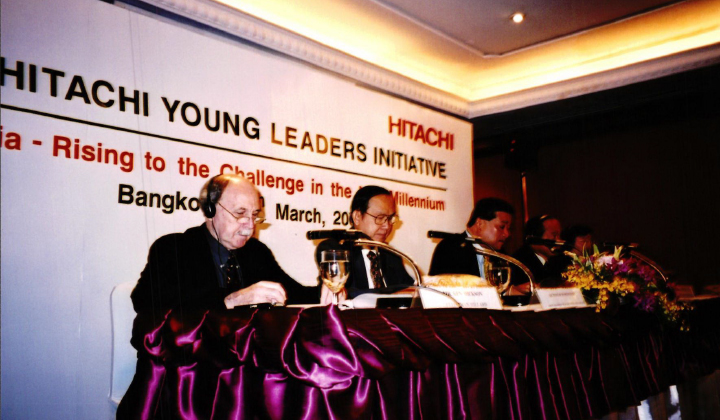

Between November 20th and 24th, 2000, in Bangkok, Thailand, twenty-four exceptional student delegates from Indonesia, Japan, Malaysia, the Philippines, Singapore, and Thailand were selected to join the 4th Hitachi Young Leaders Initiative (HYLI), a regional program created by Hitachi in 1996 with the commitment to contribute to the development of young potential Asian leaders of tomorrow. The event provided student delegates with a platform to engage in discussions and exchange ideas with regional leaders and within workshop groups on key issues affecting Asia. Additionally, a collaborative community service project with a local NGO allowed delegates to gain firsthand experience with a pressing social cause.
With the theme "Asia – Rising to the Challenge in the New Millennium," the twenty-four student delegates worked in three workshops to address the following sub-themes:
The event culminated with the following collective visions and recommendations for Asia.
Nurturing culture – A balancing act?
The student delegates observed that “In Asia, and generally, there is a lack of national pride among its people.” To foster national pride and awareness, it is essential for not only the government but also the private sector and NGOs to contribute by nurturing local culture and offering tailored solutions and policies for each country.
The environment – Protection and progress?
The 1997 haze in Southeast Asia served as a wake-up call for regional governments, highlighting the deeper issue of deforestation. Existing policies need to be revised to prevent further environmental harm. Increased regional cooperation is essential for effectively addressing the haze problem. Short-term solutions include strengthening enforcement of logging license revocations and holding logging/plantation companies accountable for damages. Proposed long-term solutions included changing legal framework regarding trans-boundary environmental concerns, a more active role for ASEAN, and increase democratization.
Technology – What role must Asia play?
The young leaders believed that "Asia must take one step back to move ten steps forward." Their recommendations focused on five key areas:
Community work
A hands-on joint work programme was organized for the student delegates in collaboration with the Child Labor Club (CLC) and a local primary school, focusing on community service and cultural exchange. The delegates worked alongside CLC members and schoolchildren, participating in activities such as building play shelters, creating Thai dye cloth, and planting flowers. The programme also featured impromptu performances and a Ninja display, where watermelon cutting skills were showcased to entertain the children.